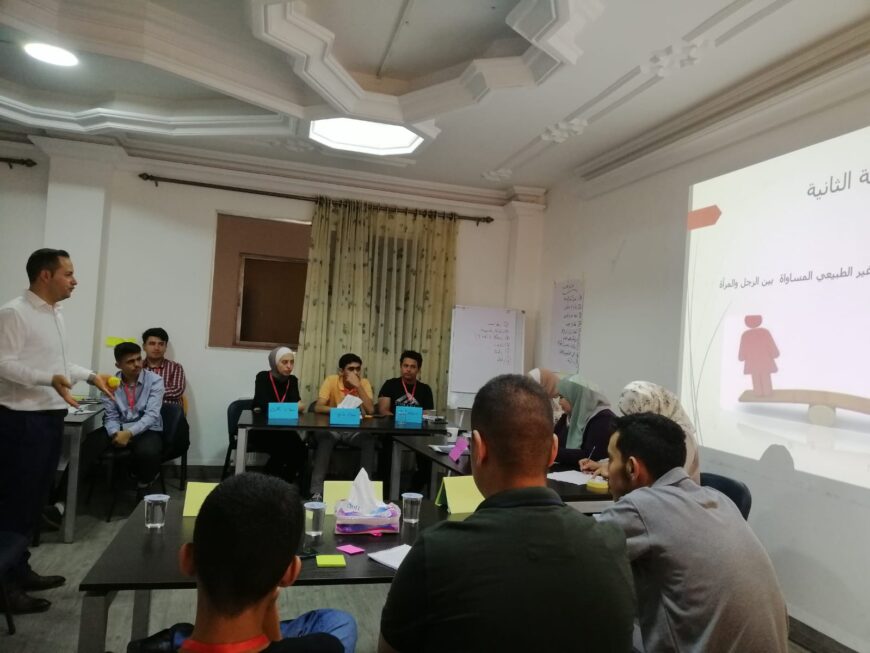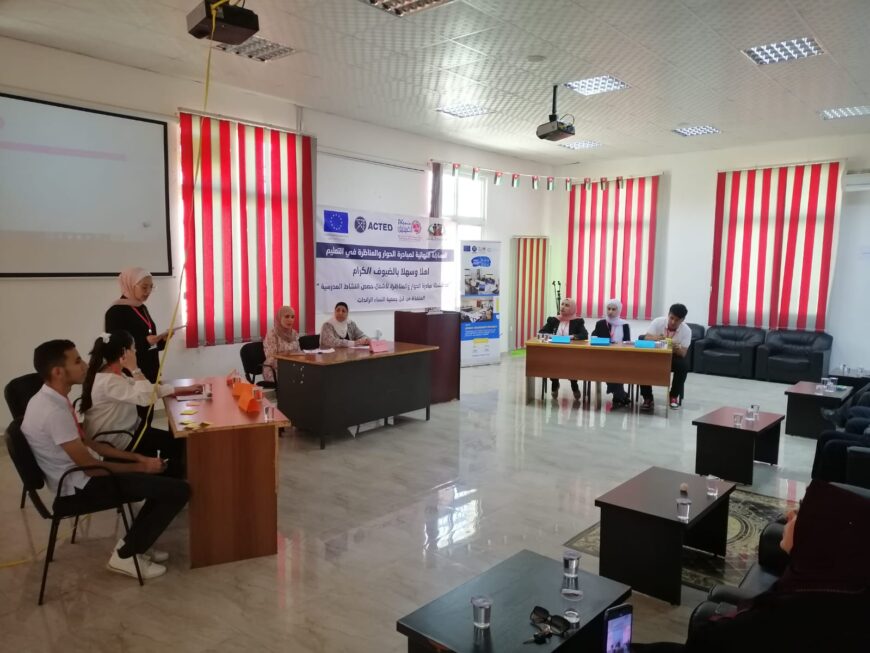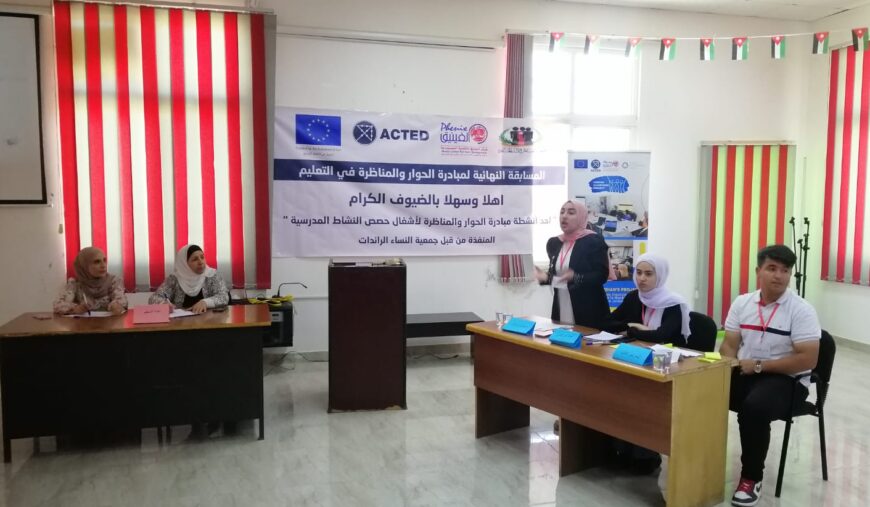In recent years, Jordan has made progress in improving access to education. The country has significantly reduced the illiteracy rate and has high enrolment rates in primary and secondary schools. Jordan has almost reached its goal of universal access to primary education, with 97% of children in school across the country.
Nevertheless, gaps remain, and not all school-age children have benefited equally from these progresses in schooling. For example, Syrians have significantly less access to education than Jordanians at all levels of schooling, which is sometimes linked to cultural norms (early marriage for Syrian girls), economic hardship and heavy administrative processes.
According to the United Nations, access to quality education is a human right that can reduce poverty and promote meaningful participation of socially marginalized adults and children. Education also plays a key role in empowering women, protecting children from exploitation, hazardous labor and sexual exploitation. In addition, quality education ensures the ability of all to participate in a local and regional labor market.
In Karak governorate, the quality of education and schools are different from that in the capital. Schools suffer from overcrowding, unsanitary buildings, and poor hygiene structures. To respond to these challenges and with the European Union’s support, Acted aims to increase the role of civil society organizations (CSOs) in improving the education system in Jordan, including in Karak Governorate.
Across Jordan, and in response to the Syrian crisis, CSOs have been multiplying as key service delivery actors, which has had the effect of distancing CSOs from a more active role in policymaking and development in Jordan. In the education sector, CSOs’ participation in policymaking processes is limited, especially due to the lack of sufficient local capacity to develop and monitor education policies. Therefore,
Acted contributes to strengthening the capacities of CSOs and their role in monitoring the implementation of public policies in education. Acted also participates in the reinforcement of CSO’s advocacy skills.
Strengthening civic actors’ role in improving educational policies and projects
In order to support CSOs’ capacity to proactively engage in policy dialogue, Acted, with its implementing partner, Phenix Center for Economics and Informatics Studies, provided seven CSOs with tailored advocacy and education policy trainings and individualized mentoring in coordination with external consultants to improve their work on policy papers.
For the project, CSOs were supported in launching advocacy initiatives through a restricted call for proposals. In the end, two initiatives were selected in the education sector. The first,” Educational Loss” aims to enhance student capacity by identifying the weaknesses in math, Arabic, and English curriculums. The second is the “Debate and Dialogue Club on Education” which aims to promote the debate and dialogue among students on different topics related to the education sector. In addition, in order to implement the proposed initiatives and contribute to the improvement of existing policies, Acted provided logistical support by purchasing the necessary tools and items, and distributed seed grants.
Citizen-led initiatives to improve youth development programmes within schools
One of the initiatives was led by the Pioneering Women Charitable Association to promote dialogues among students on different topics related to the education sector (women’s rights to education and work, early marriage) in order to increase their engagement in the school system and improve their communication skills. Specifically, the initiative aimed to enable young people to debate, developing their ability to express themselves, as well as reduce violence and improve their conflict resolution skills.

Ali* is a 14-year-old Jordanian who participated in the debate club.
It helped me to know how I can communicate with others, especially on issues that we debated. I will share this idea with my friends in my school and try to encourage my teachers to start a new debate club in my school
To achieve this, 15 students (seven girls and eight boys) between 16 – 17 years old were selected across three different schools in Karak Governorate and benefitted from four training sessions. The training introduced the debate fora concept, basic communication, and advocacy techniques.
Hana* also participated in the debate club and benefited from the training : “I had the fantastic opportunity to participate in the debate club and benefited from the training provided by the Pioneer Women’s Association. This training taught me how to communicate better with others and gave me more confidence to express myself.”
As a young girl, I was afraid to speak in front of a group of people or start a discussion with others, but now I have no problem talking with others about any topic.
After the trainings, the students practiced their skills using real-life topics, to not only improve their debating skills, but also to increase their knowledge about the issues in Jordan. One of these fora focused on the death penalty law in Jordan, with a debate competition organized for the students and attended by the educational authorities in Karak. These fora aimed to help the participants in identifying the common issues affecting their local community, and how to collect data and statistics from reliable sources.

The CSO’s aim is to expand the Dialogue and Debate fora to more schools, especially in Karak governorate, thereby spreading a positive and public belief about the benefits of extracurricular activities such as debate clubs in schools to contribute to the social development of youth.

With the support of the European Union, Acted is improving the role and capacities of CSOs in the educational sector. This initiative aims to enhance life skills as well as debate and dialogue methodology for students, teachers and parents, and more generally to include this type of activity in the school’s system.

*Names have been changed for protection purposes